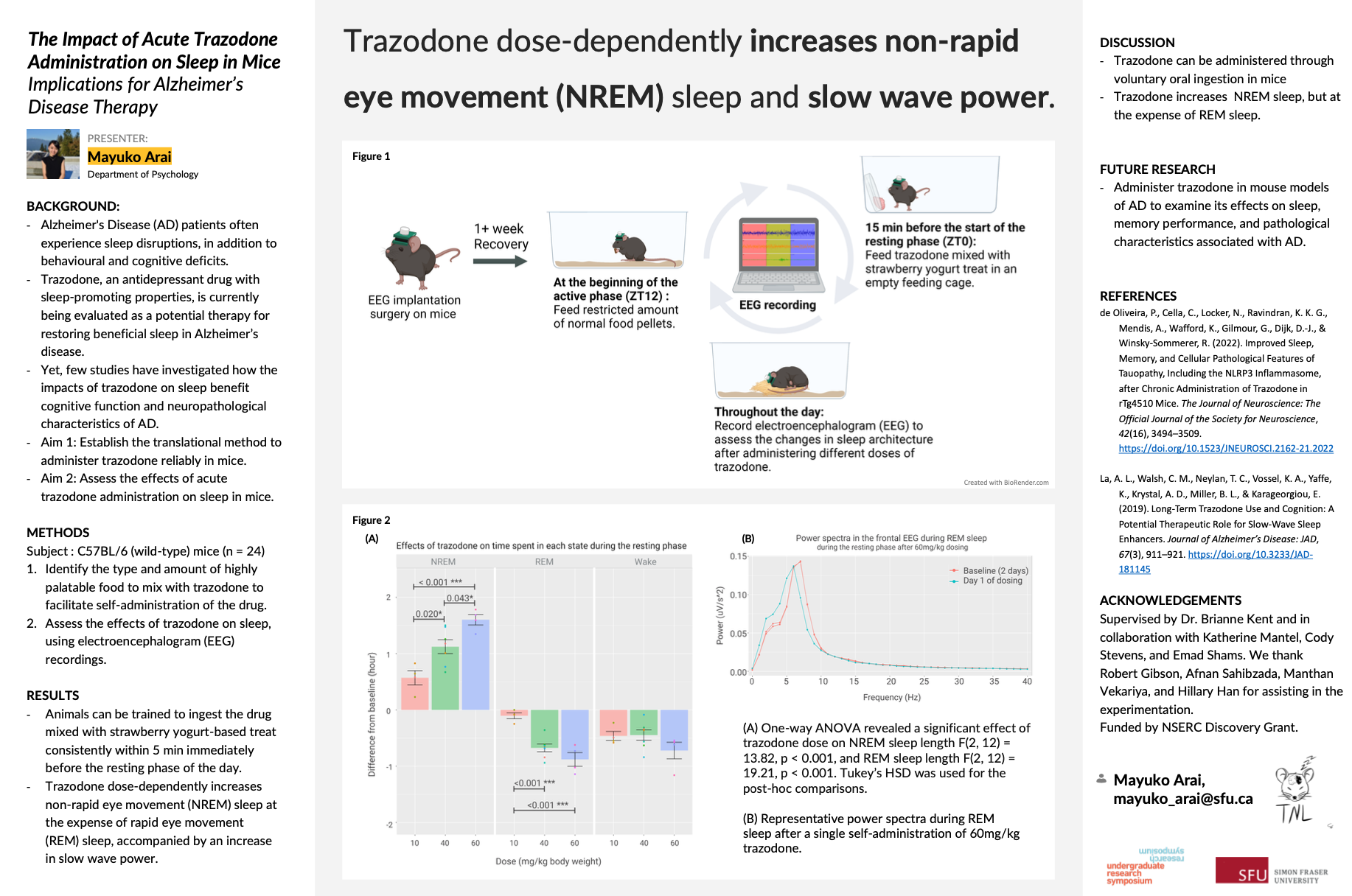Investigating the Impact of Acute Trazodone Administration on Sleep in Mice
Main Article Content
Abstract
Trazodone is an anti-depressant in clinical use for 40 years with sleep-promoting properties. Due to its sleep-promoting properties (particularly in slow-wave sleep), trazodone is currently being evaluated as a therapeutic agent in conditions associated with sleep disturbances, notably Alzheimer’s disease. Our study first delineates a methodology for facilitating the administration of trazodone to mice. The acidic nature of trazodone makes injection at a physiological pH level challenging and sleep studies necessitating intracranial electroencephalography (EEG)/electromyography (EMG), make oral gavage injection challenging. We propose administering trazodone with highly palatable food, thereby offering a non-invasive and translational route of administration. We identified the type of food to mix with the trazodone compound to facilitate self-administration of the drug reliably and reproducibly with minimal impacts on the circadian rhythms and sleep in mice (C57BL/6, aged 10-12 months; n=9). Our results suggest that a yogurt-based treat was most effective. Subsequently, the established method was applied to assess the effects of trazodone on sleep in a separate cohort of mice (C57BL/6, aged 10-11 months; n=15). The analysis is ongoing to examine the alterations in sleep architecture, quality, and power spectra through EEG/EMG recordings. The preliminary findings suggest an increase in the duration of non-rapid eye movement (NREM) sleep after the first dose of trazodone, accompanied by a corresponding reduction in wakefulness periods. This study illustrates a translational trazodone administration technique in mice and highlights the potential therapeutic use of trazodone for ameliorating sleep disturbances associated with Alzheimer’s disease pathology.
Article Details

This work is licensed under a Creative Commons Attribution-NonCommercial-NoDerivatives 4.0 International License.

